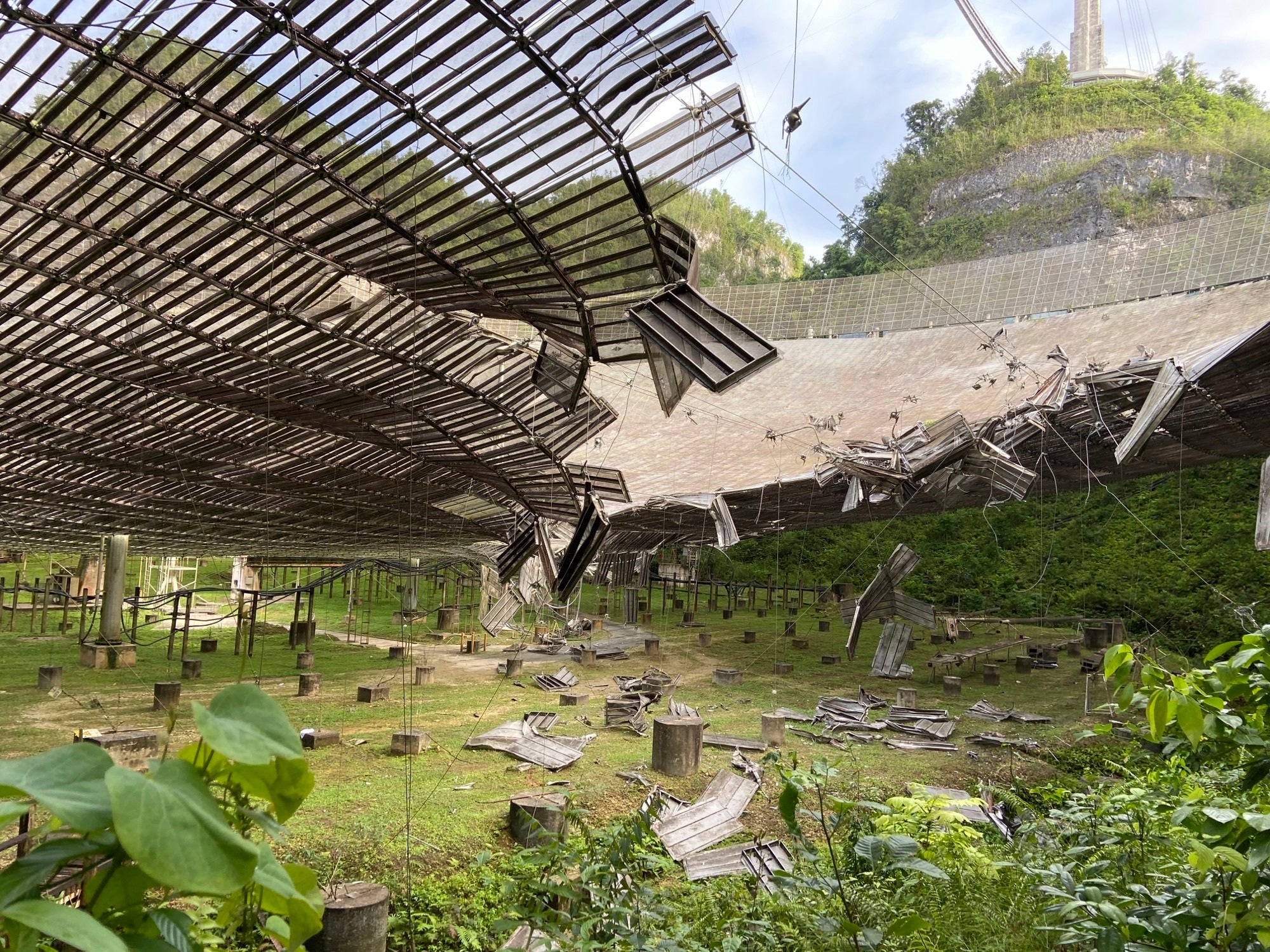Huge Puerto Rico radio telescope to close in blow to science
The National Science Foundation says it will close the telescope at the renowned Arecibo Observatory in Puerto Rico in a blow to scientists worldwide who depend on it to search for planets, asteroids and extraterrestrial life

Your support helps us to tell the story
From reproductive rights to climate change to Big Tech, The Independent is on the ground when the story is developing. Whether it's investigating the financials of Elon Musk's pro-Trump PAC or producing our latest documentary, 'The A Word', which shines a light on the American women fighting for reproductive rights, we know how important it is to parse out the facts from the messaging.
At such a critical moment in US history, we need reporters on the ground. Your donation allows us to keep sending journalists to speak to both sides of the story.
The Independent is trusted by Americans across the entire political spectrum. And unlike many other quality news outlets, we choose not to lock Americans out of our reporting and analysis with paywalls. We believe quality journalism should be available to everyone, paid for by those who can afford it.
Your support makes all the difference.The National Science Foundation announced Thursday that it will close the huge telescope at the renowned Arecibo Observatory in Puerto Rico in a blow to scientists worldwide who depend on it to search for planets asteroids and extraterrestrial life.
The independent, federally funded agency said it's too dangerous to keep operating the single dish radio telescope -- one of the world’s largest -- given the significant damage it recently sustained. An auxiliary cable broke in August and tore a 100-foot hole in the reflector dish and damaged the dome above it. Then on Nov. 6, one of the telescope's main steel cables snapped, causing further damage and leading officials to warn that the entire structure could collapse.
The telescope boasts a 1,000-foot-wide (305-meter-wide) dish featured in the Jodie Foster film “Contact” and the James Bond movie “GoldenEye” and had been operating for 57 years. Scientists worldwide have used it to track asteroids on a path to Earth, conduct research that led to a Nobel Prize and determine if a planet is potentially habitable.